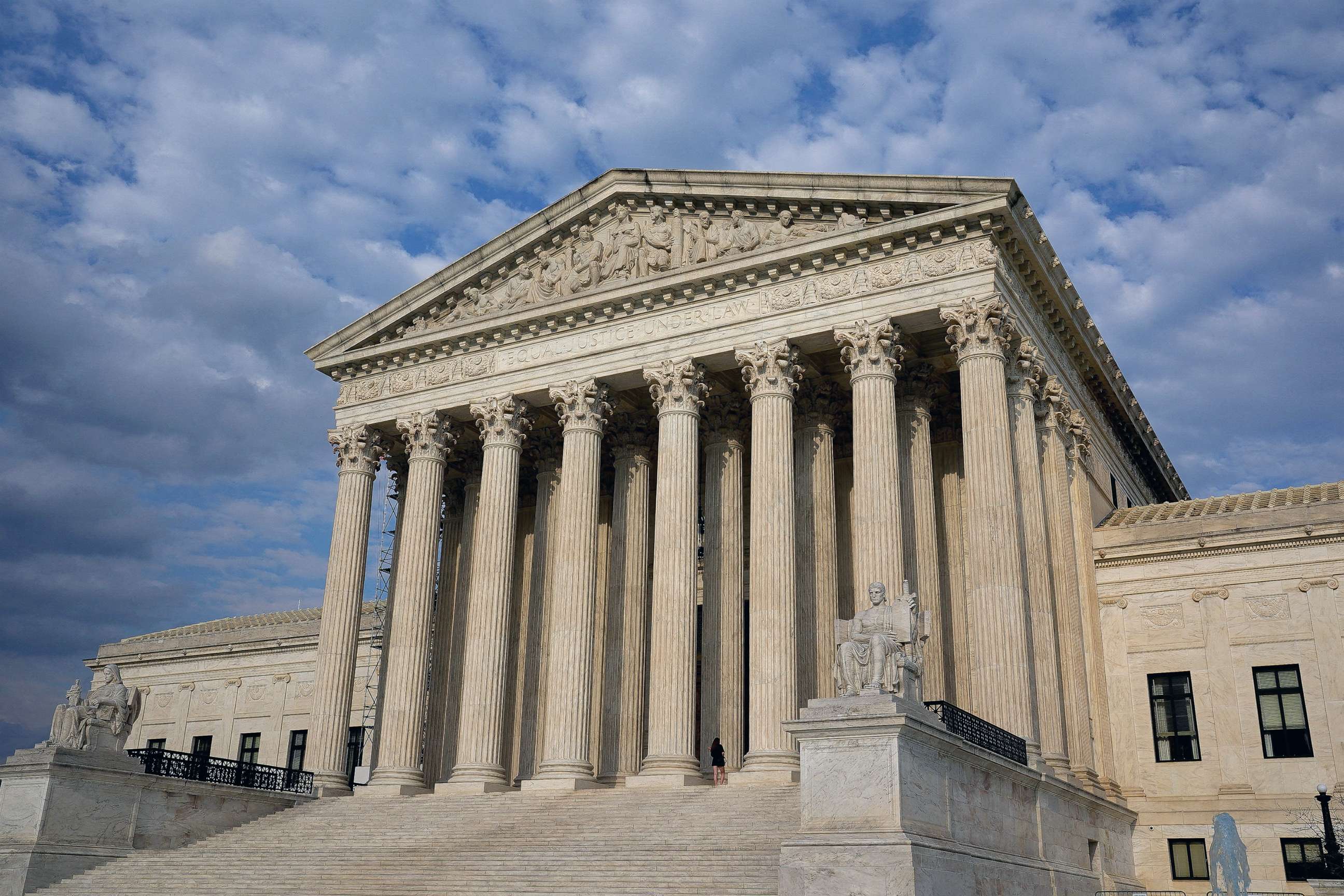Supreme Court keeps status quo on abortion pill for now, Thomas and Alito dissent
The Supreme Court on Friday granted a full stay in a case concerning the Food and Drug Administration's approval of -- and the public's access to -- the widely used abortion pill mifepristone.
The court's decision -- a 7-2 vote with Justices Samuel Alito and Clarence Thomas dissenting -- preserves access to mifepristone as the Biden administration and the pill's manufacturer appeal a lower court ruling that would impose restrictions on the drug.
Alito’s dissent said the administration and manufacturer "are not entitled to a stay because they have not shown that they are likely to suffer irreparable harm in the interim."
The White House applauded the stay and vowed to vigorously pursue its legal challenges to restrictions on the abortion pill.
"As a result of the Supreme Court's stay, mifepristone remains available and approved for safe and effective use while we continue this fight in the courts," President Joe Biden said in a statement. "I continue to stand by FDA's evidence-based approval of mifepristone, and my Administration will continue to defend FDA's independent, expert authority to review, approve, and regulate a wide range of prescription drugs."
The Supreme Court previously gave itself more time to decide whether it would wade into the legal battle over a Texas judge's unprecedented ruling suspending the FDA's approval of mifepristone more than 20 years ago.

Medication abortion quickly became the new focus of legal battles over abortion access following the Supreme Court's decision to overrule Roe v. Wade last June.
It was just months after Roe's fall that a coalition of anti-abortion doctors and associations, represented by the conservative legal group Alliance Defending Freedom, filed a lawsuit in Amarillo, Texas, challenging the FDA's assessment of mifepristone's safety and effectiveness.
Judge Matthew Kacsmaryk, a Trump-appointee, ruled in favor of the group on April 7. He stated the FDA exceeded its authority when it approved the drug back in 2000.
Kacsmaryk's order was partially blocked by the 5th Circuit Court of Appeals, though that court imposed restrictions that would prevent mifepristone from being sent to patients by mail.

The Biden administration and Danco Labs, the manufacturer of mifepristone, warned of possible wide-ranging consequences if the federal agency's expertise were to be second-guessed.
"If allowed to take effect, the lower courts' orders would thwart FDA's scientific judgment and undermine widespread reliance in a healthcare system that assumes the availability of mifepristone as an alternative to more burdensome and invasive surgical abortions," Solicitor General Elizabeth Prelogar told the Supreme Court in a filing this week.
Alliance Defending Freedom, representing opponents to the abortion pill, countered the administration's concerns amounted to a "sky-is-falling-argument."
"If this litigation involved any other drug, there would not even be a debate as to whether this Court should intervene mid-litigation stream with extraordinary relief," attorneys for the Alliance Defending Freedom wrote in a filing to the court.
The case has divided the nation, with more than 150 Republican lawmakers supporting the conservative plaintiffs. Democrats and leading medical associations, on the other hand, have pushed for mifepristone's continued availability.
Some states and abortion providers have been stockpiling abortion drugs as the legal battle plays out.
The 5th Circuit Court of Appeals is scheduled to hear oral arguments in the case on May 17.




